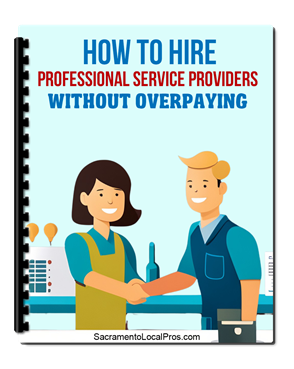Starting and running a small business is rewarding, but it’s not without its challenges.
Business owners often juggle countless responsibilities from managing cash flow to navigating tax laws.
Many successful small businesses share a common secret weapon in their toolkit—a Certified Public Accountant (CPA).
With their specialized financial expertise, CPAs can transform a business’s financial health and help business owners focus on what they do best.
We'll cover 13 compelling reasons small businesses thrive when they partner with a CPA, touching on everything from tax savings to long-term growth strategies.
What Does A CPA Do For Small Businesses?
Before we dig into the key benefits, it’s helpful to understand exactly what services a CPA offers to small businesses.
Unlike bookkeepers or accountants, CPAs bring advanced training, licensing, and expertise in areas like tax planning, auditing, and financial strategy.
Their work goes beyond balancing books. They provide actionable insights, compliance support, and tailored strategies for businesses in a wide range of industries.
Here's why that's critical for small businesses.
1)) Tax Compliance Made Easy
Small business tax codes are complex and constantly changing. CPAs stay updated on the newest laws and regulations to ensure businesses remain compliant.
Mistakes on tax returns or missteps in compliance can lead to hefty penalties; CPAs help avoid those pitfalls.
2)) Maximizing Tax Deductions
Not sure how to make the most of your eligible tax breaks?
CPAs specialize in uncovering deductions you might have overlooked, from business expenses to home-office costs.
They know how to legally lower taxable income to keep more money in your pocket.
3)) Strategic Financial Planning
Planning for long-term success often requires an expert outlook. CPAs assist small businesses in creating budgets, forecasting cash flow, and setting achievable financial goals.
Having a CPA's support ensures your growth plans are built on a solid financial foundation.
4)) QuickBooks & Financial Software Setup
Using accounting software?
CPAs can guide small businesses in setting up and optimizing tools like QuickBooks or Xero.
They make sure the software aligns with your business needs, saving time and reducing human error.
5)) Managing Payroll
Payroll isn’t just about cutting checks; it involves taxes, compliance, and reporting.
CPAs streamline the entire payroll process, ensuring employees are paid on time and all legal obligations are met.
6)) Audit Protection & Support
Facing an audit can be stressful for any business. CPAs step in as advocates and representatives during IRS audits, handling questions and providing detailed records.
They ensure you’re prepared with compliant and transparent documentation.
7)) Cash Flow Management
Maintaining steady cash flow can make or break a small business. CPAs analyze income and expenses, providing actionable advice to optimize cash flow and keep your business liquid during lean months.
8)) Better Loan Applications
Need funding to grow your business? CPAs help small businesses strengthen loan applications by providing detailed, accurate financial statements.
Their reports instill lender confidence, increasing the odds of approval.
9)) Navigating Business Structures
Unsure whether to structure your business as an LLC, corporation, or sole proprietorship?
CPAs evaluate your situation and recommend the structure that maximizes tax advantages and shields personal assets.
10)) Building Investor Confidence
Potential investors need to trust your company’s financial stability. CPAs create trustworthy, detailed reports and financial statements that can attract and reassure investors.
11)) Specialized Industry Insights
Each industry comes with its unique financial challenges. CPAs specializing in small businesses often have expertise in specific sectors, whether it’s retail, hospitality, or service-based industries.
Their knowledge can lead to tailored strategies that prioritize profitability.
12)) Fraud Prevention
Fraud can devastate a small business. CPAs excel at setting up internal controls to reduce the risk of fraud and embezzlement. They also regularly monitor accounts to ensure accuracy.
13)) Focusing On Core Business Functions
Perhaps the most overlooked advantage is peace of mind. With a CPA handling taxes, payroll, and compliance, business owners free up time to focus on what they do best… running an amazing business.
Conclusion
Hiring a CPA isn’t just a good idea for small businesses; it’s a game-changer. From cash flow optimization to tax strategy, CPAs handle the vital tasks that allow a business to grow and thrive.
If you’re ready to take your small business’s financial strategy to the next level, start researching trusted CPAs in your area or niche.
The investment pays dividends in the form of financial health, peace of mind, and long-term success.
Download Our Free E-book!








